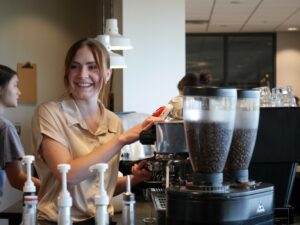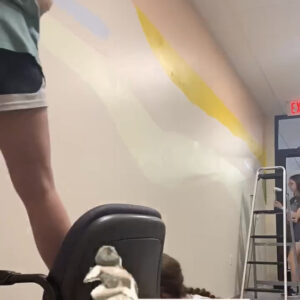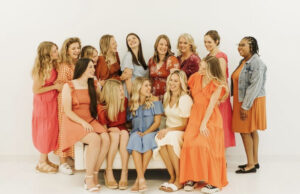The Talon staff sat down with Ansel Jeffries, a member of Oklahoma Christian University’s Black Student Union, to discuss Black History Month and how it will be celebrated on campus this month.
What role do you play in the BSU and what inspired you to join the organization?
I am, as of right now, the chaplain of the BSU. That means I am over most spiritual aspects, like chapel and devos. I got inspired because I felt as though with the small representation we have on this campus, I felt like it was up to us to be as involved as possible and to get our culture and the things about us that people don’t know out there.
What should the student body know about the BSU and Black History Month?
One: BSU is not just for black people. I think that’s a common misconception. I think that people don’t feel comfortable or don’t feel welcome trying to go to events or go to our chapel because they don’t understand that it’s for everybody. It’s a time to learn about our culture and things about our culture that others might not know or might not have had the opportunity to have learned.
I think that segues greatly into Black History Month because I think Black History Month is a good time to highlight and spotlight different historical events and things that happened that aren’t necessarily shared in the public school system or in school in general. You’re able to learn new things. Even as a black man, I learn new things every February, things that don’t really come up as often. I think it’s important to have those times to reflect and really sit down and analyze your history and see what really happened in life.
Is the BSU planning any special activities this month?
We have Soul Food Night. We have a video that we’re shooting tomorrow.
Why do you believe Black History Month is important?
I think it’s kind of scary how left out some parts of black history are, and even how misinterpreted a lot of events are. It’s really nice to have a time period where you’re highlighting and really digging deep into the things that happened in black history to where you get that shocking realization that in school we’re not learning everything, and we’re not necessarily learning the things in the order that they happened. It’s good to dig deep and find more knowledge sometimes.
Is there someone in the Civil Rights Movement who is an inspiration to you?
Yes. As an athlete, I’ve got to look at Muhammad Ali. Muhammad Ali was the first one to really say, “I know I have this platform, and I know a lot of people haven’t used it for this, but I’m going to use it for this.” He really stood out there and really let sports not be his only platform. I think the same with LeBron James, how he’s more than an athlete. I think that’s great for not only black athletes, but all people. You can know that you’re more than something. So for Muhammad Ali to stand on this platform and say, “I’m more than an athlete. I’m going to stand up for what I believe in,” that really stuck with me.
Through events like History Speaks, is Oklahoma Christian doing enough to raise awareness of Black History Month?
I’d say it’s a start. History Speaks is definitely a start. It’s a great event. I think we get a lot of big names that a lot of people need to know about but don’t. Between Bryan Stevenson and Mr. Santana who just came, I think those are great names the world needs to know about. OC having them on campus is huge. I think there’s always more you can do. Because the African American population on campus is so low compared to the rest, I think that it’s important for us to intentionally do more and maybe even have stuff weekly. I don’t know; I’m not higher up. But I think something should be done where we’re putting more of an emphasis on taking the time to learn something new.
Outside of Black History Month, does the BSU have any short or long-term goals?
I would hate to speak on behalf of the BSU without the rest of the BSU to back me up on this, but I will say I think one of our main goals is just to increase the knowledge and increase the awareness of how African Americans are feeling on campus, how black people are feeling. Whether it’s a matter of comfortability, whether it’s a matter of security, whether it’s a matter of we just want you to know more about us and what makes us go, because we know a lot about you, it’s great for us to have a spot where we can unwind—because I know there are a lot of times where when we’re around other cultures and they don’t necessarily understand us, we feel like we have to assimilate. I think it’s great for us to have a place to unwind, but also it’s great for others to come and unwind and see us in that environment and what we look like when we’re just comfortable.
















Be First to Comment